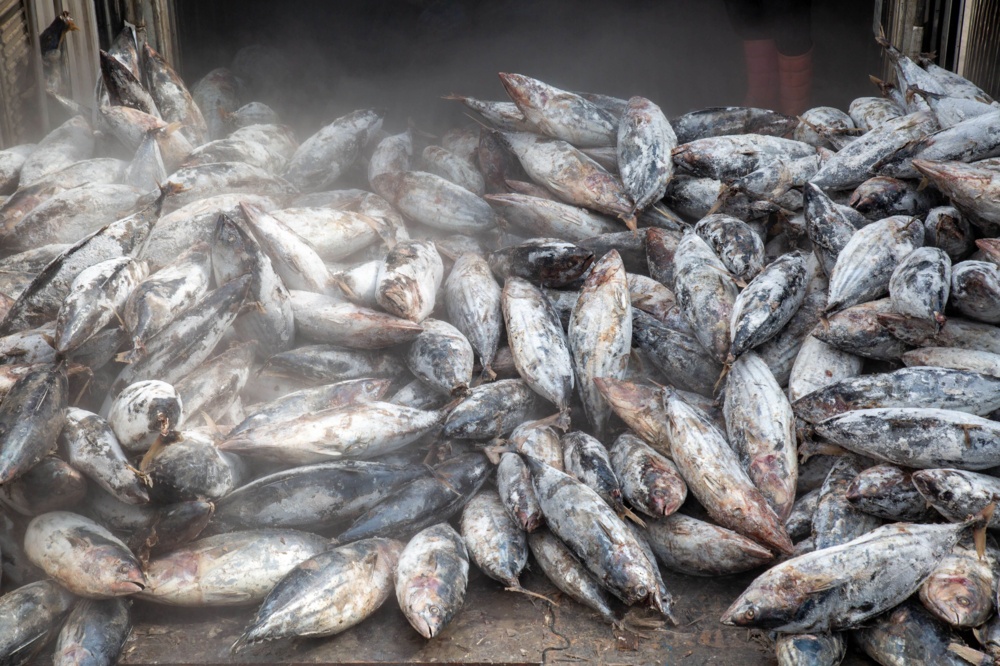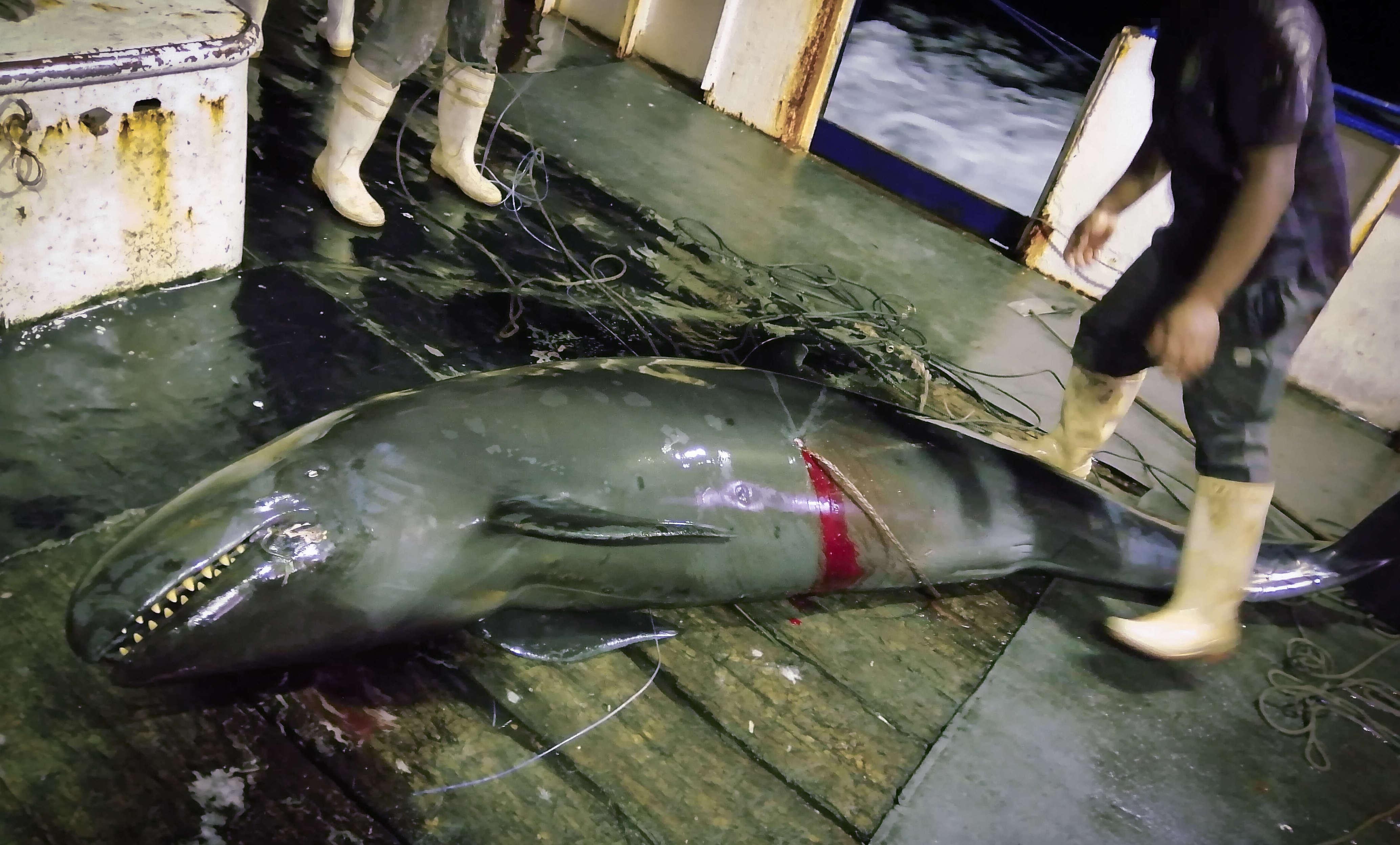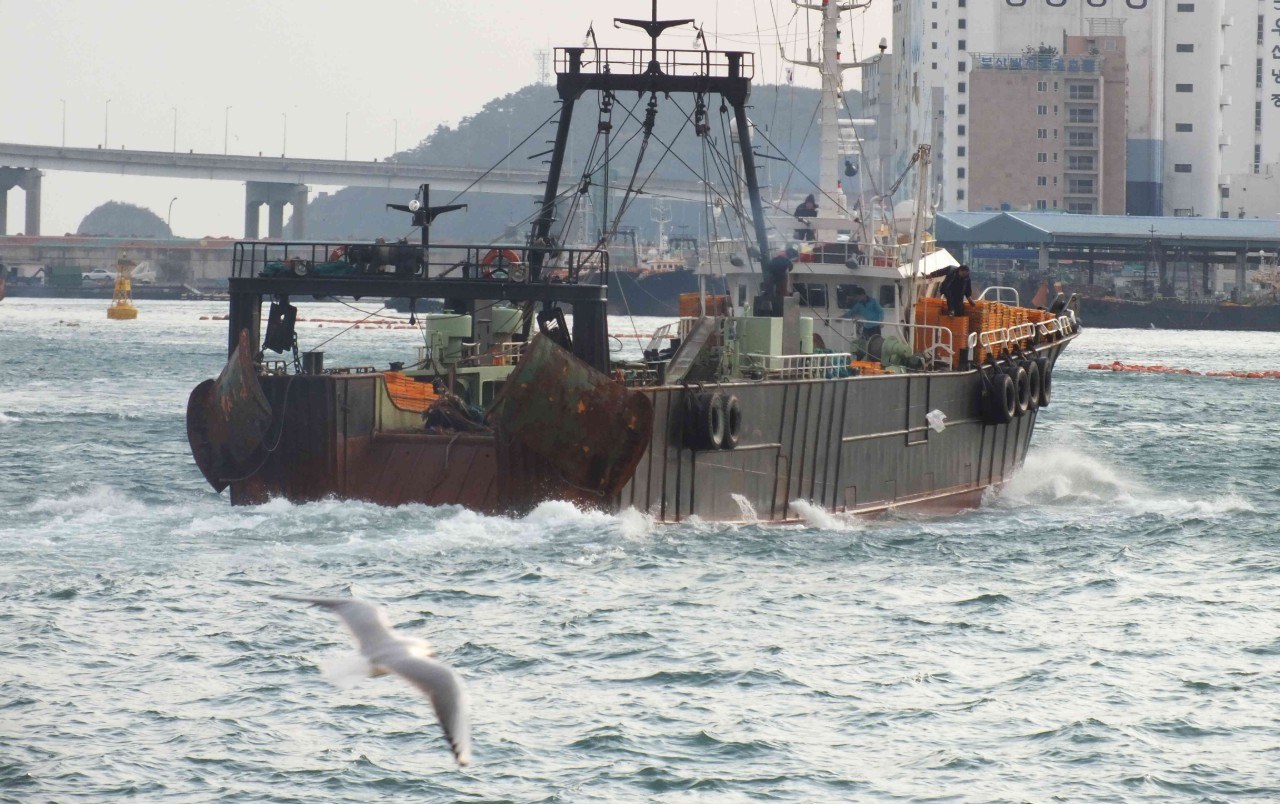
Slave labour and ecosystem destruction at sea: UK must act to protect fisheries and the ocean
Fishing vessels around the world – from Russia to China – are using the pervasive lack of transparency in the industry to decimate the oceans, abuse crew and sell their products to lucrative markets like the UK. The government can help change that.
Following over four years of field investigations, crew interviews, and satellite tracking, the Environmental Justice Foundation recently published the most comprehensive analysis of China’s distant water fleet to date.
We uncovered criminality on a massive scale. The fleet is rife with human rights abuses and illegal fishing, including targeting endangered and protected marine life across the world’s ocean.
We spoke to more than 100 crew from 88 vessels: 95 per cent had witnessed illegal fishing; 58 per cent had experienced or witnessed physical violence; over a third reported that protected species such as turtles and seals were caught and killed on their vessels; and around a fifth said dolphins were routinely slaughtered as bait for sharks. These high levels are indicative of systemic illegality.
This is made possible by the profound lack of transparency in global fisheries, enabling unsustainable, unethical, and illegal behaviour to thrive. Our report exposed the activities of the Chinese fleet, but all around the world vessel operators take advantage of the opaque system every day.
Just days after Foreign Secretary Liz Truss announced that Russian fishing vessels would be banned from UK ports, those same ships started ditching their Russian flags and registering elsewhere to evade sanctions. In March, 18 vessels changed their Russian flag to a different nationality – more than three times the normal rate.
Unscrupulous vessel operators sow enormous confusion around their identities, escaping detection by changing vessel names or flags, concealing ownership, or removing ships from registers entirely. The UK can take tangible action towards protecting the ocean and UK supply chains from these illegal operators – and it must start with transparency.
Confusing the authorities
Lack of clarity on vessel ownership presents one of the biggest hurdles to sanctioning illegal operators. These perpetrators hide behind complex onshore corporate structures, using shell companies to hide their identity while decimating fish populations and threatening the survival of local fishing communities.
In Ghana, for instance, around 90 per cent of the nation’s industrial trawl fleet is suspected to be owned by Chinese corporations who use local ‘front’ companies to register as Ghanaian and circumvent the law.
But again, it is not just China – Russia has used these tactics for years. In 2018, a vessel fishing illegally was arrested having managed to evade authorities by flying eight different flags. Its sister vessel was arrested in 2019 for illegal fishing – since 2006 it had changed its flag seven times.
Both vessels were owned by a Russian company which took home the profits – but to confuse authorities they were operated from South Korea with registered owners in Belize and the Marshalls Islands respectively.
Without clarity around vessel ownership, we cannot hold those profiting from these illegal acts to account. However, if governments and regional fisheries bodies around the world simply required all vessels to publish their ‘beneficial’ ownership details – those ultimately profiting – before being granted fishing or import licences, we could start to counter this issue.
Similarly, public information on fishing licences and past infractions could help ensure vessels with a history of illegality are not granted licences again.
Criminal seafood
Currently, we also lack any real oversight over where fish – caught legally or illegally – end up. However, as China accounts for 30 per cent of world fish production and in 2020, China was the second largest exporter of seafood to the UK, it is highly likely that seafood caught illegally or by forced labour is landing on our plates.
Illegal fishing threatens the survival of marine ecosystems and the health of our ocean, yet the opacity of our supply chains means people around the world run the risk of unknowingly supporting these criminal networks every time they buy seafood.
By strengthening import controls, traceability and transparency to enable accurate tracking of supply chains, the UK Government can stop illegal, slave-caught seafood from ending up on British supermarket shelves. This is the only way we can be sure that we, as consumers, don’t inadvertently drive abuse and the destruction of our ocean.
Transparency
The opacity of fisheries and seafood supply chains, poor governance and corruption have long enabled distant water fleets to ravage our oceans and commit horrendous human rights abuses while facing no consequences for their actions. Crew interviewed by EJF spoke of physical and verbal abuse aboard Chinese vessels, along with gruelling hours, inadequate food and water, and forced labour at the hands of Chinese senior crew.
We desperately need all nations to implement simple, low-cost transparency measures to help fight these crimes and safeguard our ocean. With these measures in place, offenders in the Chinese fleet could have been quickly identified and excluded by nations looking to protect their marine resources, deter others from illegality, and halt the problem at its source.
In the same way, any sanctions or tariffs on Russian-owned vessels could be more effective, ensuring they don’t simply change flags to maintain access to British markets.
The lack of transparency in global fisheries aids illicit operators while hindering anyone trying to hold lawbreakers to account. China and Russia are just two examples of a global problem – we need systemic change from every nation that catches, imports, or trades seafood to end this chaos. The UK Government must seize the opportunity to be a leader in this fight.
This piece was originally published by The Scotsman and is shared here with permission
SIGN UP FOR OUR EMAILS AND STAY UP TO DATE WITH EJF

